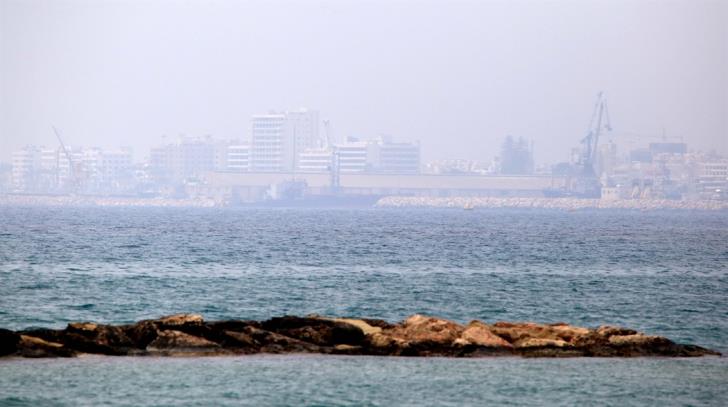Cyprus’ economy has suffered another setback from the Israel-Hamas conflict just as it appeared to be recovering from the COVID and the Ukraine war.
While hoping for a swift end to atrocities and human suffering in the region, stakeholders in the island’s economy did not hide their concern for the impact on Cyprus.
In 2020, Cyprus saw its economy shut down due to the COVID-19 pandemic, only to be hit a year later by global shockwaves following Russia’s invasion of Ukraine.
The ongoing war in Ukraine has had serious repercussions on the economy, particularly concerning tourist arrivals and inflation.
Moreover, in the past weeks, the military conflict between Israel and Hamas threatens to add to the cost-of-living burden.
In comments to the Financial Mirror, Deputy Minister of Tourism Costas Koumis said that while concentrating on offering humanitarian relief, authorities are also preparing for the fallout from the conflict.
“We hope to see the atrocities come to an end soon, as tourism can only thrive under peace,” said Koumis.
The minister said the sector has already seen its first losses, as the Israeli market is its second largest source of income.
“It is our second largest market, with specific characteristics.
“Although Israeli tourists spend the least days on the island (4.3 per capita), they bring in more income and fill in periods of slower traffic from other countries due to the proximity of the neighbouring country,” said Koumis.
He added that the loss of the Israeli market comes less than two years after Cyprus saw the last tourists from Russia arrive before the war in Ukraine.
Russia had been the second biggest source of tourists, providing Cyprus with some 800,00 visitors a year.
In September, tourist arrivals from Israel increased 11.7% to 57,088 compared to the same month last year.
For the year to September, there was a 17.9% increase to 3,136,145 arrivals from 2,540,554 in 2022.
Director General of the Cyprus Hotel Association, Philokypros Roussounides, told the Financial Mirror that losses are expected, although it is too soon to conclude the conflict’s impact.
“Although the conflict broke out towards the end of this year’s main tourist season, it is expected to take its toll on bookings for next year,” said Roussounides.
He explained that many holidaymakers start booking their getaways for the summer season towards the end of the year.
“It is not only the market from Israel that we are concerned about.
“The war and atrocities also have a damning effect on potential travellers’ psych,” he added.
Business interest
Concerns are also rising among businesses, even though there are no reports of Cypriot companies in Israel.
However, many businesses in Cyprus have Israeli interests, although the exact number is unclear.
The toll on these businesses remains unknown, with duration of the conflict determining the magnitude of potential impacts.
However, the business world is more concerned over the toll the conflict will have in the long run, as they fear a repeat of the energy crisis and an inflation hike following the war in Ukraine.
Talking to the Financial Mirror, Michalis Antoniou, the Director General of the Cyprus Employers and Industrialists Federation (OEB), expressed his organisation’s concerns.
“The crisis in the neighbouring country has created uncertainty, and should the military conflicts escalate, there will be economic repercussions.
“There are also fears of indirect effects on businesses, as was the case with the war in Ukraine, which led to an energy crisis and high inflation.
“Cyprus could potentially serve as a safe destination for relocating Israeli businesses.
“While it is too early to assess the situation, if the war prolongs, Israeli workers and entrepreneurs may seek refuge in Cyprus”.
Antoniou revealed that OEB is studying the issue in relation to the employment status of these workers, as they are third-country nationals.
A similar status to that applied to workers from Ukraine may be considered.
As for trade relations between Cyprus and Israel, there doesn’t seem to be a significant concern.
In 2022, total imports from Israel to Cyprus were €829.5 million, and exports were €102.8 million.
According to Statistical Service data, imports of mineral fuels from Israel reached €776.4 million last year.
They were followed by imports of electrical equipment at €11.5 million and aircraft equipment at €5.49 million.
Furthermore, imports of plastic products were €5.2 million, and paper products were €3.5 million.
Out of the total exports of Cypriot products to Israel of €102.8 million, the majority were fishery products (€28.7 million), followed by exports of electrical equipment (€26.4 million).
This was followed by salt exports at €8 million, plastic products (€5.6 million), and pharmaceutical products (€3.7 million).
Energy expert Costis Stambolis, the President of the Energy Institute of Southeastern Europe, told the Financial Mirror about the negative effects of the long-term plans to interconnect Israeli gas with Turkey.
He said the onus is for an LNG plant in Cyprus, which has been delayed.
“The current situation underscores the necessity of such a solution.
“This geopolitical aspect is highly advantageous for us because the situation in Israel can change rapidly”.
“The Tamar gas field, which supplies Israel’s industrial sector, recently halted production and operations for three days.
“Thus, Cyprus’s capacity to host liquefied gas facilities is quite relevant now.
“Thanks to their strategic location, existing infrastructure, and expertise, Greece and Cyprus can serve as a reliable source of energy supply for Israel and the broader region”.










